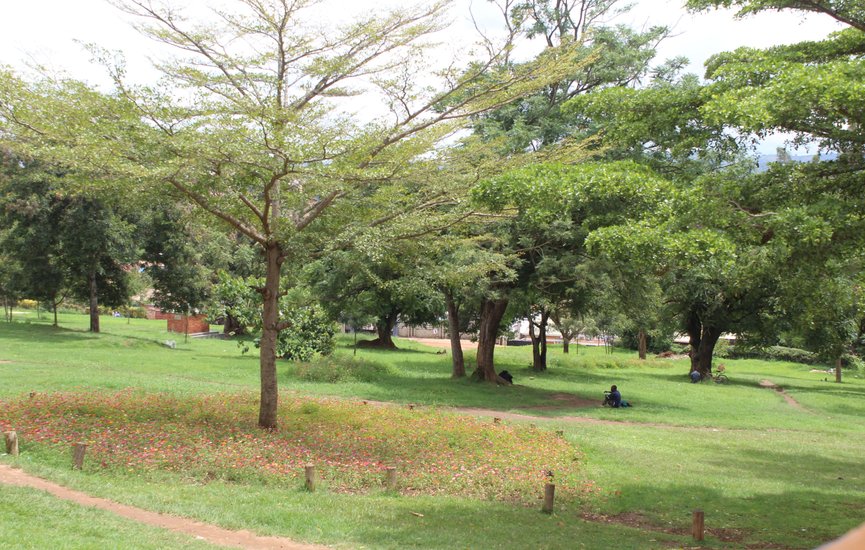In Mbarara City, Uganda, Independence Park originally designed as a public space for recreation has evolved into a bustling hub where unemployed young people gather daily to discuss ideas, seek opportunities, and support each other in creating livelihoods. For many graduates and jobless youth, the park has become a vital platform for networking, collaboration, and informal enterprise development, reflecting both the creativity and the challenges faced by Uganda’s youth.
Among those frequenting the park is Ambrose Ajuna, a Development Studies graduate who has spent over two years without formal employment. He explains that the park provides a free, accessible space where young people can brainstorm, pool resources, and plan small-scale businesses. Through these gatherings, some youth pooled funds to rent land and start a brick-laying business, which is now operational and generating income. “[The park] is where we meet, exchange ideas, and figure out how to create jobs for ourselves,” he said.
Similarly, Emmanuel Mujuni, a graduate from Bishop Stuart University, describes how he and his peers spend the day visiting potential employers, offices, and businesses, only to reconvene at Independence Park in the evening to reflect on their efforts and plan their next steps. “We each take different paths during the day, but we meet here to chart a way forward and encourage one another,” he said.
The Mayor of Mbarara City, Robert Mugabe, views the park’s new role positively, noting that if young people use it as a space to discuss ways of improving their livelihoods, it serves a constructive purpose. “If the youth are meeting here to develop ideas to improve their lives, then there is no problem,” the mayor said.
However, not all residents share this optimistic view. Some local community members, like George Twesigye, who lives adjacent to the park, worry that gatherings could attract criminal elements. “Some of the youth who meet here could be criminals or potential criminals. I think it is here where they plan unlawful activities,” he said.
The Rwizi Region Police Force acknowledges these concerns and says it closely monitors activities at the park. Spokesperson Samson Kasasira explained that intelligence-led operations are carried out regularly, and anyone found planning criminal acts is apprehended.
Independence Park’s transformation into a hub for jobless youth underscores the broader challenges of youth unemployment in Uganda, where the official unemployment rate for youth is estimated at over 13%, with underemployment and informal work affecting an even larger proportion. Public spaces like Independence Park become essential venues for informal networking, peer learning, and entrepreneurial initiatives in the absence of formal job opportunities.
The phenomenon also raises important questions for urban planning and policy. While such spaces foster innovation and self-reliance among youth, they also highlight gaps in government employment strategies, the need for safe public areas, and the importance of youth-focused economic programs. Experts suggest that cities like Mbarara could support these informal initiatives by providing mentorship, training, microfinance opportunities, and safe venues where youth can meet and incubate ideas.
As Independence Park continues to serve as a gathering point for Mbarara’s youth, it symbolizes both the resilience of young people in the face of unemployment and the urgent need for coordinated efforts to create sustainable job opportunities across Uganda.
